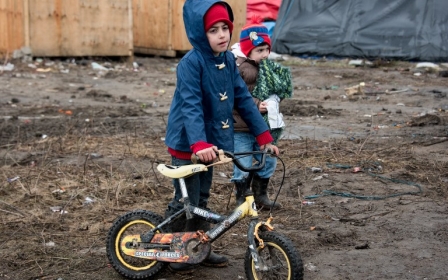Growing numbers of Syrian children forced into labour in Lebanon: Report

Forced labour among Syrian refugees, especially children, is on the rise in Lebanon, slavery experts warned on Tuesday.
A new report released by the Freedom Fund, an international intiative fighting slavery, found that a majority of child refugees who end up in Lebanon are being put to work for little or no money.
The report, Slavery and Exploitation of Syrian refugees in Lebanon highlights Lebanon’s Bekaa Valley as an area of particular concern when it comes to the prevalence of child labour.
“One leading NGO [working in the area] estimated that between 60 and 70 percent of Syrian refugee children are working, with child labour rates even higher in the Bekaa Valley,” the report said.
“There is strong demand among Lebanese employers for child workers and many are pressed into the worst forms of child labour.”
Children in Bekaa Valley are often tasked with doing agricultural work in dangerous conditions.
"I know a 12-year-old girl who has packed her toys in a bag because she has to work," one Lebanese worker told the interviewers. "She doesn’t want people in the camp to see her play with her toys and think she is young and unfit to work."
According to those interviewed for the study, there is high demand among Lebanese employers for Syrian and Palestinian children, as they are far cheaper to employ than adults – and also more compliant.
“Slavery and human trafficking are illegal and abhorrent,” said Nick Grono, CEO of the Freedom Fund, who called for "decisive action".
“Without significant and determined intervention, the situation will only worsen for many hundreds of thousands of refugees at risk of extreme exploitation.”
Child marriage is also particularly prevalent amongst communities in which families cannot afford to care for their future and see marriage as their only coping strategy, the report found.
Families would often marry off their daughters in a bid to give them economic security, but this could lead to the girls being kept in slave-like conditions.
According to one refugee interviewed for the report, forced labour is so widespread that it is now considered the norm.
“With my brother, who sewed, his employer would take a portion of his salary and keep it. In this way, he has to continue working for him,” said the refugee who lives in Beirut.
Grono added: “We can no longer say we did not know. The exploitation of Syrian refugees in Lebanon is endemic and I encourage the Lebanese government and international community to adopt the recommendations in the report."
Stay informed with MEE's newsletters
Sign up to get the latest alerts, insights and analysis, starting with Turkey Unpacked
Middle East Eye delivers independent and unrivalled coverage and analysis of the Middle East, North Africa and beyond. To learn more about republishing this content and the associated fees, please fill out this form. More about MEE can be found here.




